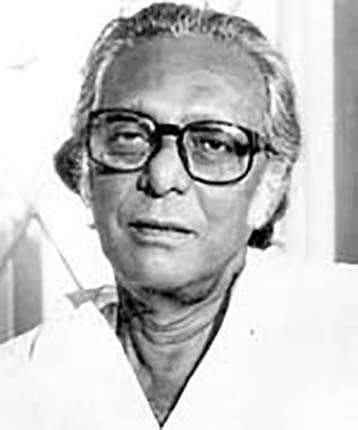Shastri Ramachandaran
THE recent fracas at a cine awards function in Dubai over the inappropriateness of seating Amitabh Bachchan in the 11th row brings to mind a story that the film-maker Mrinal Sen told me a couple of years ago. It happened long ago, when Amitabh was no Big B but a “bachcha”, as Mrinalda says, eager for a break in films.
It was 1969. Sen had finished shooting Bhuvan Shome in Bhavnagar, Gujarat. During the days he was editing the film in Bombay, he had gone over to the house of friend and script-writer, K A Abbas, who had just begun work on Saath Hindustani. Abbas was sitting with a group from which he proposed to pick his cast and crew.
Sen told him that he wanted a good voice as the narrator of his film and would prefer a new voice.
A lambu stepped out from among those seated and told Sen “Ami Bangla jaaney” (I know Bengali). Sen told “the boy” his Bengali was bad but his voice good, which was good enough for the narration in Hindi. Abbas allowed Amitabh to take on the assignment.
When the work was done, Sen said he would not be able to pay him much. The boy did not want payment and said he didn’t do it for money. Sen insisted and paid the amount. The boy then asked whether his name would appear in the titles. Sen replied in the affirmative. The boy’s name was Amitabh Bachchan. “But in the title, put only Amitabh. Don’t mention Bachchan”, he pleaded and Sen agreed.
In the credit titles of Mrinal Sen’s Bhuvan Shome, the voice-over artiste’s name “Amitabh” appears last. Indeed, this must be the only film in which the Bachchan name figures at the end and not even in full. When I saw the film in 1970, I didn’t notice this detail. Nor did I register the narrator’s baritone voice — heard for less than five minutes at the film’s beginning and end — that was to become famous. But on the last occasion I met Sen, when a retrospective of his films was being screened at the India International Centre in Delhi, he told me this story and I made it a point to pay attention to the unforgettable voice.
Bhuvan Shome bagged many awards, including the National Award in 1970, when the director and his voice-over artiste met in Calcutta. When the two went to a function at a film journalists’ association, a reporter, on seeing Amitabh, asked Sen, “Is he your next hero?” Sen admitted he liked the idea, “But I have to find a role that fits him”. Amitabh himself was keen on acting in one of Sen’s films. Sen would have liked to cast him in Interview and the actor too would have liked the role. The hitch was that Sen wanted an ordinary looking person. “And Amitabh, even then, was a striking personality”.
Sen assured me that “the boy” remembers all this. Some years ago he corrected a critic that the first voice-over he did was not in 1983 for Satyajit Ray’s Shatranj ke Khiladi but for Bhuvan Shome. But, recalls Sen fondly, Amitabh said that I paid him Rs 500. “He does not remember. It was only Rs 300”.
This article was first published on March 6, 2004 in The Tribune.
Unlock Exclusive Insights with The Tribune Premium
Take your experience further with Premium access.
Thought-provoking Opinions, Expert Analysis, In-depth Insights and other Member Only Benefits
Already a Member? Sign In Now










